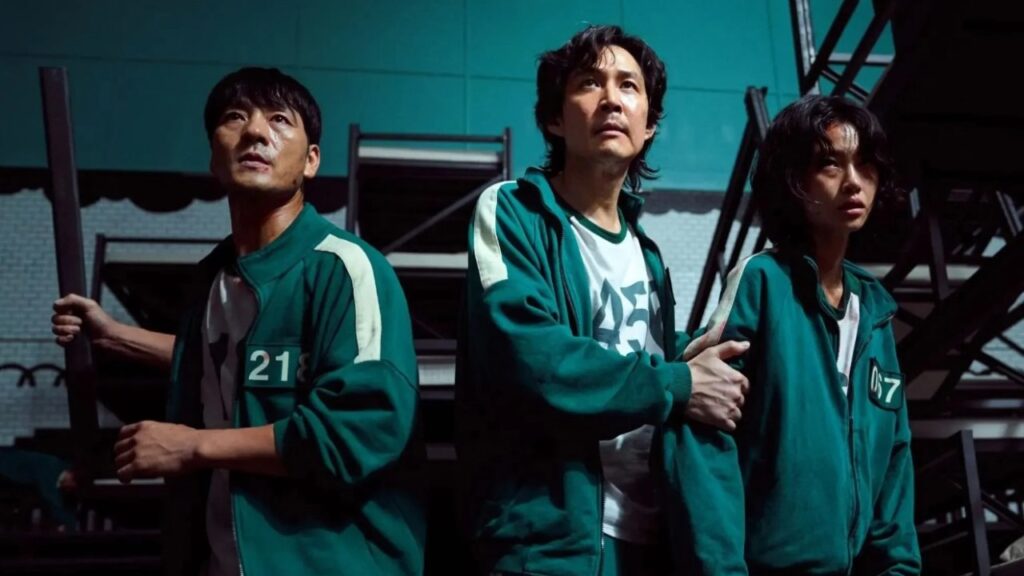
Squid Game Season 1 Full Review: In-Depth Analysis, Key Moments, and Why It Became a Global Phenomenon
If you’re searching for an honest and detailed Squid Game season 1 full review, you’ve come to the right place. Since its release, Squid Game has taken the world by storm, quickly becoming one of the most talked-about and binge-watched series globally. Its unique blend of intense survival drama, deep social commentary, and unforgettable characters set it apart from typical thrillers.
This Squid Game season 1 full review will explore everything that makes the first season so captivating—from its gripping storyline and well-developed characters to the powerful themes that challenge society’s inequalities. Whether you’re a longtime fan wanting to relive the excitement or someone considering whether to watch it for the first time, this review will break down the key moments, the show’s cultural impact, and what made it resonate with audiences worldwide.
Get ready for a comprehensive look at Squid Game Season 1, packed with insights that will deepen your understanding and appreciation of this global phenomenon.
Table of Contents
ToggleSquid Game Season 1 Synopsis
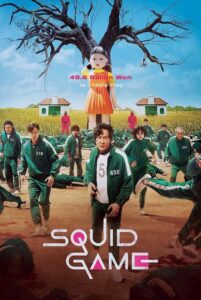 Squid Game Season 1 follows the story of 456 individuals, each facing severe financial struggles and personal hardships. Desperate for a way out, they accept a mysterious invitation to compete in a series of childhood games with the promise of a huge cash prize. But there’s a deadly twist — losing any game means losing their lives. This high-stakes competition pushes the players to their limits, forcing them to confront not only physical challenges but also moral dilemmas and human nature itself.
Squid Game Season 1 follows the story of 456 individuals, each facing severe financial struggles and personal hardships. Desperate for a way out, they accept a mysterious invitation to compete in a series of childhood games with the promise of a huge cash prize. But there’s a deadly twist — losing any game means losing their lives. This high-stakes competition pushes the players to their limits, forcing them to confront not only physical challenges but also moral dilemmas and human nature itself.
At the center of the story is Seong Gi-hun, a down-on-his-luck man who becomes an unlikely hero. Alongside him, we meet other players with unique backgrounds and motivations, from the cunning businessman Cho Sang-woo to the quiet but determined Kang Sae-byeok. As the games progress, alliances form and break, and the true character of each player is revealed under extreme pressure.
This gripping storyline combines intense action with emotional depth, making Squid Game much more than just a survival thriller — it’s a reflection on society’s inequalities and the lengths people will go to survive. The season’s carefully crafted narrative keeps viewers on the edge of their seats, episode after episode.
Main Characters and Their Development
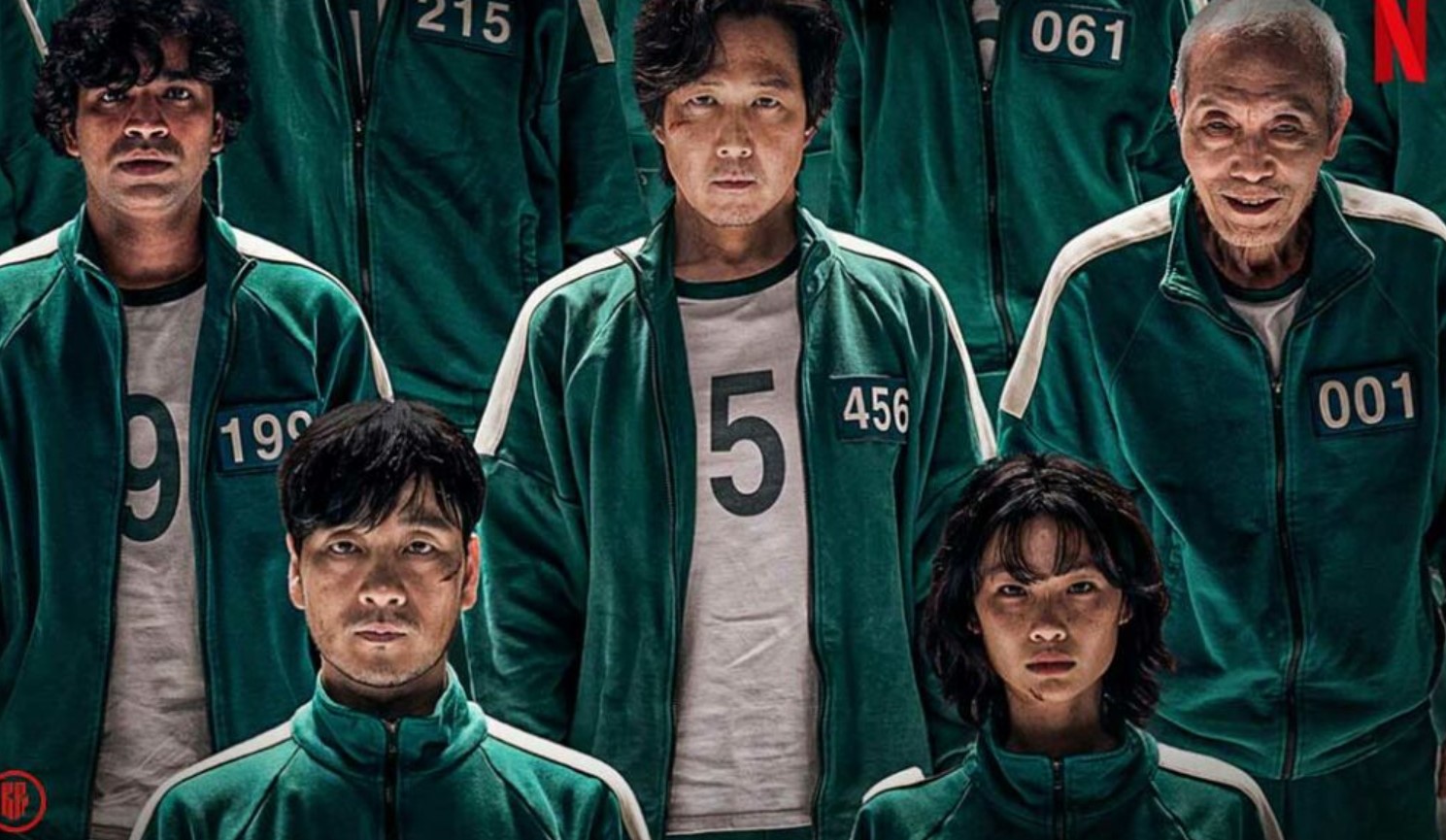 One of the biggest strengths of Squid Game Season 1 lies in its well-crafted characters, each with a distinct backstory and motivations that add depth to the high-stakes drama.
One of the biggest strengths of Squid Game Season 1 lies in its well-crafted characters, each with a distinct backstory and motivations that add depth to the high-stakes drama.
- Seong Gi-hun (Player 456): The protagonist, Gi-hun is a flawed but relatable character—a struggling father with gambling debts and a desire to reconnect with his family. Throughout the season, we see his growth from a desperate man to someone who fights for justice and humanity amid chaos.
- Cho Sang-woo (Player 218): A former investment banker, Sang-woo represents the moral complexities within the game. His intelligence and strategic thinking make him a formidable player, but his decisions also reveal the darker side of survival instincts.
- Kang Sae-byeok (Player 067): A tough North Korean defector, Sae-byeok’s story adds emotional weight, highlighting themes of sacrifice and hope. Her quiet strength and determination resonate deeply with viewers.
- Oh Il-nam (Player 001): The elderly player whose mysterious presence adds intrigue and emotional depth, challenging perceptions of vulnerability and wisdom.
- The Front Man: The enigmatic overseer of the games, whose identity and motivations become a crucial part of the story’s suspense.
These characters’ development throughout the season helps the audience connect emotionally, making every win, loss, and betrayal impactful. Their interactions and evolving relationships enrich the narrative beyond the survival game’s brutality, elevating Squid Game to a story about humanity in desperate times.
Key Episodes and Most Memorable Moments
 Squid Game Season 1 is packed with unforgettable episodes and scenes that have left a lasting impact on viewers worldwide. Here are some of the standout moments that define the season:
Squid Game Season 1 is packed with unforgettable episodes and scenes that have left a lasting impact on viewers worldwide. Here are some of the standout moments that define the season:
- The Red Light, Green Light Game (Episode 1): This opening episode immediately sets the tone for the series with its shocking blend of childhood innocence and brutal survival. The tension builds as players realize the deadly stakes, making it a perfect hook that draws viewers in.
- The Glass Bridge Challenge (Episode 7): One of the most intense episodes, the glass bridge game tests players’ nerves and trust as they must step carefully across fragile panels. The mix of suspense and betrayal here keeps viewers on edge.
- The Marbles Game (Episode 6): Unlike the physical challenges, this episode focuses on psychological warfare. Players must use strategy and deception in a seemingly simple game, showcasing the emotional depth and complexity of the series.
- Gi-hun’s Final Confrontation (Episode 9): The season finale delivers a powerful climax where Gi-hun faces off against the remaining players and confronts the mastermind behind the games. This emotional and action-packed conclusion wraps up many storylines while leaving room for future developments.
These episodes highlight the creative storytelling and high stakes that make Squid Game Season 1 so compelling. Each moment is carefully crafted to evoke strong emotions, whether it’s fear, sympathy, or shock, ensuring viewers stay fully engaged until the very end.
Themes and Symbolism
Squid Game Season 1 goes beyond a simple survival thriller by exploring deep and thought-provoking themes that resonate with a global audience.
- Class Struggle and Economic Inequality: The series highlights the desperation faced by people trapped in debt and poverty, showing how economic disparity can push individuals to extreme measures. The players represent different facets of society’s underprivileged, making the show a powerful social commentary.
- Human Nature and Morality: As the deadly games progress, the characters’ true nature is revealed. The series questions how far people will go to survive and what moral lines they’re willing to cross. It explores the conflict between self-preservation and empathy.
- Trust and Betrayal: The dynamics of trust play a crucial role, with alliances formed and broken under pressure. This theme adds complexity to character relationships and keeps viewers guessing.
- Childhood Games as a Metaphor: The use of innocent childhood games turned deadly symbolizes lost innocence and the harsh realities of adult life. It also contrasts nostalgia with violence, creating a haunting atmosphere.
- Symbolism in Visuals: From the iconic masks of the guards to the use of colors (green tracksuits, pink uniforms), every visual element is carefully designed to enhance the themes and mood.
These themes and symbols give Squid Game a rich, layered narrative that invites viewers to reflect on society and human behavior long after the credits roll.
Visual Style and Direction
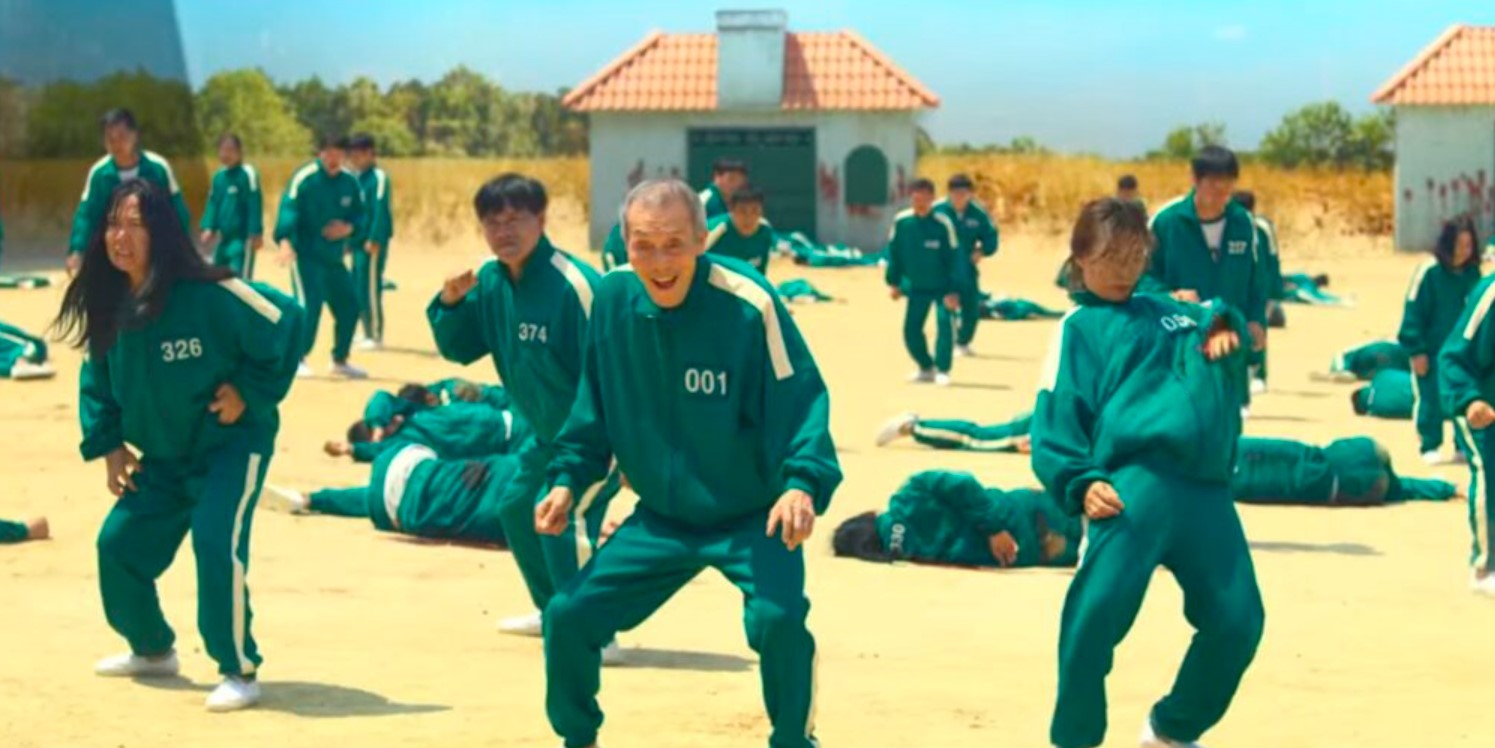 One of the standout features of Squid Game Season 1 is its striking visual style and masterful direction, which play a crucial role in immersing viewers in the story’s intense atmosphere. The show’s unique aesthetic combines bright, almost surreal colors with dark and grim themes, creating a powerful contrast that enhances the emotional impact.
One of the standout features of Squid Game Season 1 is its striking visual style and masterful direction, which play a crucial role in immersing viewers in the story’s intense atmosphere. The show’s unique aesthetic combines bright, almost surreal colors with dark and grim themes, creating a powerful contrast that enhances the emotional impact.
Director Hwang Dong-hyuk uses carefully crafted set designs, such as the vibrant game arenas and eerie, sterile waiting rooms, to reinforce the feeling of a twisted playground where life and death hang in the balance. The geometric shapes, bold color palettes, and clean lines are not only visually appealing but also symbolic, often reflecting the characters’ psychological states and the rigid structures of the society they come from.
The cinematography is equally impressive, with tight close-ups capturing the raw emotions of the players, while wide shots emphasize their isolation and vulnerability. The pacing and camera work intensify suspense, especially during key game scenes where every movement matters.
Overall, the visual style and direction in Squid Game Season 1 significantly contribute to its storytelling power, making it a feast for the eyes as well as a gripping narrative experience.
Soundtrack and Sound Design
The soundtrack and sound design of Squid Game Season 1 are key to creating its intense and immersive atmosphere. Composed mainly by Jung Jae-il, the original score features haunting piano melodies, classical pieces, and atmospheric instrumentals that heighten the suspense and emotional depth without using vocal tracks.
One of the most iconic musical elements is the classical piece “Pink Soldiers” (by Johann Strauss II), which plays during deadly games like “Red Light, Green Light.” This eerie, childlike tune contrasts sharply with the brutal violence on screen, creating a chilling effect that lingers in viewers’ minds.
Other notable instrumental OST tracks include “Way Back Then,” a nostalgic piano piece that underscores the loss of innocence, “Round VI,” which builds tension during crucial moments, and “Stay Alive,” capturing the urgency and desperation of survival.
Sound design also plays a vital role, using silence, ambient noises, and subtle effects—such as footsteps, breathing, and echoes—to enhance the feeling of isolation and heighten suspense throughout the series.
Together, these carefully crafted musical and sound elements make Squid Game Season 1 a fully immersive experience that deeply engages viewers emotionally and psychologically.
Audience Reception and Critical Acclaim
Squid Game Season 1 received overwhelming positive reception from audiences and critics alike, quickly becoming a global phenomenon. The show broke numerous streaming records on Netflix, reaching over 100 million views within its first month — one of the fastest-growing series in the platform’s history.
Critics praised Squid Game for its unique concept, intense storytelling, and social commentary. The blend of suspense, drama, and emotional depth resonated with viewers worldwide, sparking discussions on economic inequality, human nature, and survival ethics. Review aggregators like Rotten Tomatoes and Metacritic reflected high scores, with many reviewers highlighting the strong performances and innovative direction.
The series’ impact extended beyond entertainment, influencing fashion trends, memes, and pop culture references internationally. However, it also sparked debates about its graphic violence and dark themes, especially regarding age-appropriateness.
Overall, the widespread acclaim and cultural impact cemented Squid Game Season 1 as one of the most influential and talked-about series of recent times.
Controversies and Criticisms
While Squid Game Season 1 garnered massive praise, it was not without its share of controversies and criticisms. One of the primary concerns raised by viewers and critics alike was the show’s intense and graphic violence. Some argued that certain scenes were excessively brutal, raising questions about its suitability for younger audiences despite Netflix’s age ratings and warnings.
Another point of contention involved the portrayal of social issues such as poverty and debt. While many applauded the series for highlighting economic inequality, some critics felt the depiction was overly dramatized or simplified, potentially reinforcing stereotypes rather than fostering nuanced discussion.
There were also safety concerns in real life, as some children and teens mimicked the dangerous games, prompting warnings from parents and authorities.
Despite these criticisms, Squid Game’s storytelling, character depth, and social commentary generally outweigh negative feedback, contributing to lively conversations around the series and its themes.
Why Squid Game Season 1 Became a Worldwide Phenomenon
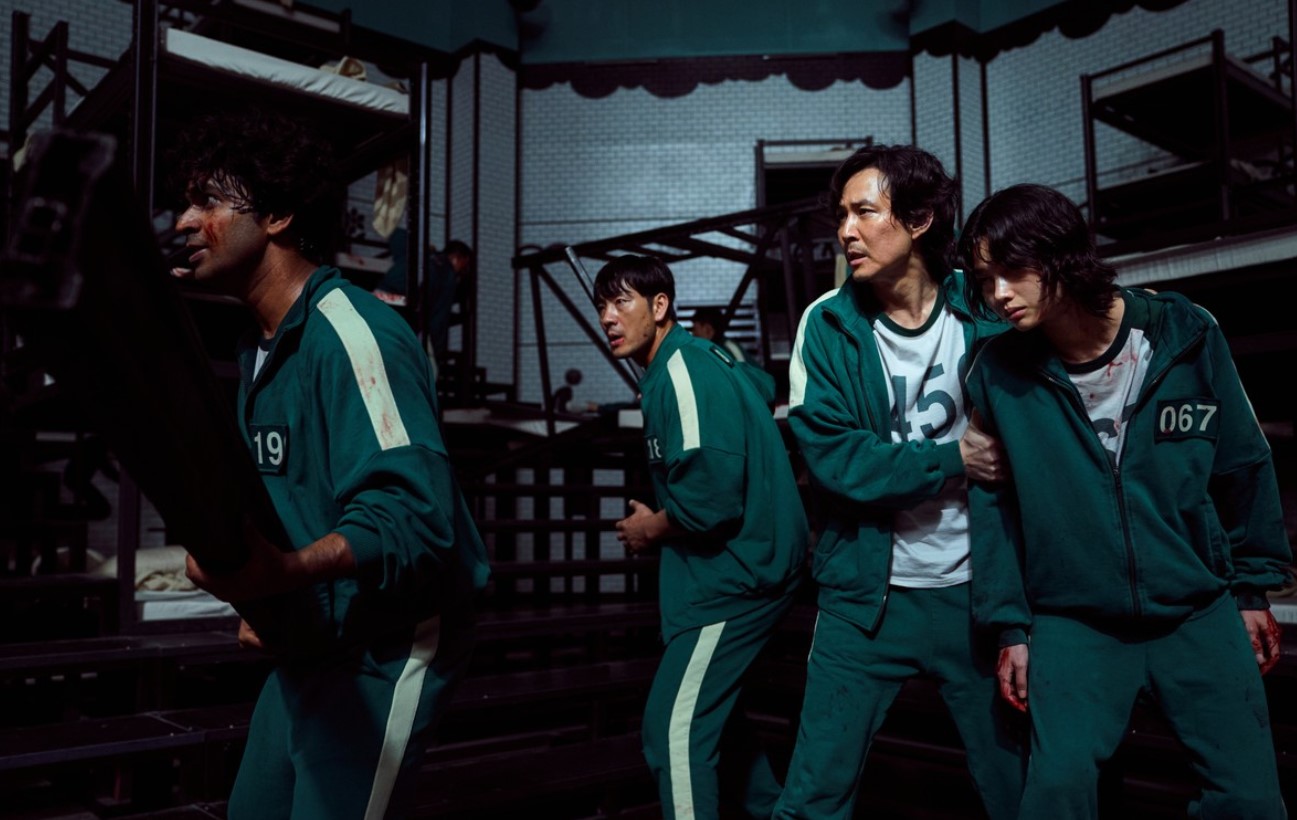 The explosive global success of Squid Game Season 1 can be attributed to several key factors that resonated with audiences across cultures and backgrounds.
The explosive global success of Squid Game Season 1 can be attributed to several key factors that resonated with audiences across cultures and backgrounds.
First, the show’s unique and gripping concept—a deadly survival game based on childhood playground challenges—was fresh and instantly intriguing. It combined familiar elements with high stakes, keeping viewers hooked from the very first episode.
Second, the relatable characters drew viewers in emotionally. Each player’s backstory and struggles mirrored real-life issues like debt, inequality, and personal despair, allowing audiences to connect deeply with their journeys.
Third, Squid Game effectively blended thriller, drama, and social commentary, making it much more than just a survival show. The series sparked meaningful conversations about economic disparity and the human condition, elevating it beyond entertainment.
Additionally, Netflix’s global streaming platform gave the show unprecedented international reach, supported by subtitles and dubbing that made it accessible to a wide audience.
Finally, the show’s visual style, memorable soundtrack, and intense storytelling created a captivating experience that encouraged binge-watching and social sharing. Memes, challenges, and fan theories flooded social media, boosting its viral popularity.
Together, these elements made Squid Game Season 1 a cultural phenomenon that transcended language and geography, becoming one of the most talked-about series in recent history.
In this Squid Game season 1 full review, we’ve explored the gripping storyline, complex characters, and powerful themes that made the series a global sensation. From its unique survival game concept to its sharp social commentary on inequality and human nature, Squid Game captivated audiences worldwide and sparked meaningful conversations. The show’s exceptional visual style, haunting soundtrack, and intense direction further enhanced the viewing experience, making it a must-watch for thriller and drama fans alike.
Whether you’re revisiting the series or considering watching it for the first time, Squid Game Season 1 offers a thrilling and thought-provoking journey that stays with you long after the final episode. Stay tuned for the next season, which promises to continue this compelling story.
Frequently Asked Questions (FAQs)
1. What is Squid Game Season 1 about?
Squid Game Season 1 is a South Korean survival thriller where 456 players, all in deep financial trouble, compete in deadly childhood games for a massive cash prize. The series explores themes of desperation, morality, and social inequality through intense and emotional storytelling.
2. Why did Squid Game Season 1 become so popular worldwide?
The show’s unique concept, relatable characters, and powerful social commentary about economic disparity resonated globally. Its thrilling plot, striking visuals, and memorable soundtrack also contributed to its viral success on platforms like Netflix.
3. Are there any spoilers in this Squid Game Season 1 full review?
This review includes some plot details and key moments to provide a thorough analysis. If you haven’t watched the series yet and want to avoid spoilers, it’s best to watch it first before reading the full review.
4. What are the main themes explored in Squid Game Season 1?
Major themes include class struggle, human nature under pressure, trust and betrayal, and lost innocence. The series uses deadly games as a metaphor to discuss societal inequality and survival instincts.
5. Who are the key characters in Squid Game Season 1?
The main characters include Seong Gi-hun (Player 456), Cho Sang-woo (Player 218), Kang Sae-byeok (Player 067), Oh Il-nam (Player 001), and the mysterious Front Man. Each character has a unique backstory and role in the survival game.
6. Is the Squid Game Season 1 soundtrack vocal or instrumental?
The soundtrack is primarily instrumental, featuring haunting piano pieces and classical tunes like “Pink Soldiers.” There are no vocal songs, but the music effectively enhances the series’ suspense and emotional tone.
7. Is Squid Game Season 1 suitable for all audiences?
No, Squid Game contains graphic violence and mature themes, making it unsuitable for children and sensitive viewers. It’s rated for mature audiences, so viewer discretion is advised.
8. Is there a Squid Game Season 2?
Yes, Squid Game Season 2 is already out and continues the story from Season 1. It introduces new characters, expands the game’s world, and dives deeper into the mysteries fans have been eager to explore.
